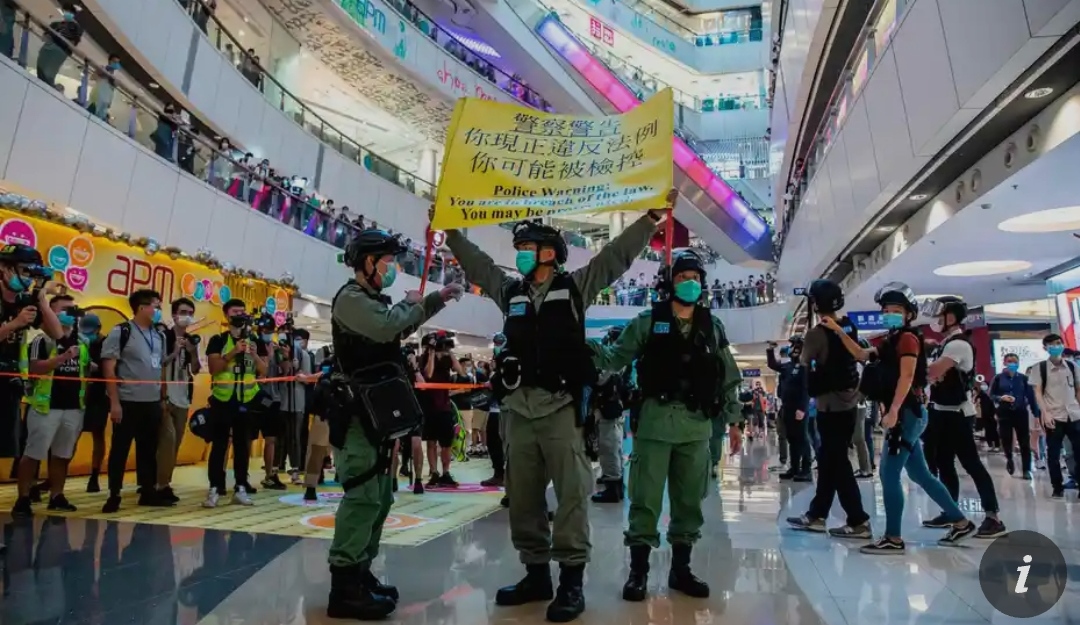China has only itself to blame for Australia’s move on Hong Kong

The Australian government and its partners had no choice but to recognise the new reality in the territory and offer some of its citizens a way out.
I feel sorry for Chinese foreign ministry officials, with whom I have had many good conversations over the years. They have been pushed to lambast Australia and other Western democracies with such frequency that they risk running out of fresh invective, hyperbole and idiom.
It was inevitable that Chinese diplomats would excoriate Australia after prime minister Scott Morrison’s measured moves this week in response to Beijing’s draconian national security legislation for Hong Kong: offering limited sanctuary to Hong Kongers, suspending an extradition treaty with Hong Kong and heightening the travel warning for the city.
The Chinese embassy in Canberra responded with the usual condemnations of foreign interference and hinted once more at retaliation, suggesting Australia was “lifting a rock only to hit its feet”. Ironically, this Chinese adage about the risk of dropping a stone on yourself when you seek to throw it at someone else speaks more to how Beijing has handled Hong Kong.
The Chinese Communist Party’s erosion of Hong Kong’s freedoms over the past decade incited a series of intensifying backlashes from Hong Kongers, culminating in last year’s unprecedented rolling protests. Likewise, the CCP’s squeeze on Hong Kong forced the hand of foreign governments because Beijing undermined the principles of legal independence and “a high degree of autonomy” upon which the city’s special global status is based.
The One Country, Two Systems arrangement, which was established when the UK handed Hong Kong to China in 1997, was explicitly designed to protect the city from the mainland’s repressive and capricious political and legal systems. This firewall gave Hong Kongers and the international community the confidence to keep doing business in the city after the handover.
Beijing has been chipping away at the firewall for several years, abducting perceived troublemakers (from booksellers to a billionaire) off the streets of Hong Kong, blocking democracy activists from elections and taking ever more direct control over the city’s government.
Working as a correspondent in Hong Kong at the time, and getting to know many of the people caught in Beijing’s tightening grip, I was alarmed by these developments. The CCP was using “salami-slicing” tactics to steadily eradicate freedom and autonomy in Hong Kong, while hoping that the US and other Western governments would look the other way.
It mirrored the approach Beijing used in the disputed South China Sea, building artificial islands and military facilities in a series of incremental steps, none of which on their own were enough to prompt meaningful pushback.
But when I spoke to Western diplomats in Hong Kong, they would usually play down my fears about Hong Kong’s future, insisting that while they had some concerns about Beijing’s actions, One Country, Two Systems was mostly operating well.
Amid the torrent of news about deteriorating Australia-China ties, it is easy to forget that until relatively recently, Canberra was determined to keep focusing on China’s commercial potential. And Hong Kong, with which Australia implemented a trade deal at the start of this year, has always been a pivotal part of that relationship.
The problem is not just the vaguely defined offences of subversion, secession and collusion with foreign powers, or the untrammelled investigatory powers given to the Hong Kong authorities. The new legislation has fundamentally altered the governance of Hong Kong by super-imposing the CCP’s arbitrary legal system and powerful secret police on the city. It is beyond debate that Beijing calls the shots now, not Hong Kong’s hapless chief executive Carrie Lam.
After several years of hoping for the best in Hong Kong, the Morrison government and its Five Eyes partners have had no choice but to recognise the new reality. The response from Canberra has been carefully calibrated to reflect this situation, rather than to antagonise Beijing.
The suspension of the extradition treaty and the upgraded travel advice are a logical consequence of the changes Beijing has made in Hong Kong, in violation of the commitments it made in the Sino-British Joint Declaration, the treaty that paved the way for the handover.
On the question of sanctuary for Hong Kongers, immigration is an explicitly sovereign power. Morrison’s offer of extended visas for Hong Kongers in Australia or those seeking student or skills-based work permits has been welcomed by the small number who will benefit – the government predicts the uptake will be “in the hundreds or the low thousands”.
The limited proposal has been designed not to trigger fears about immigration during a recession in Australia. But it is still a welcome symbol of solidarity, coming alongside the much more generous offer from the UK, Hong Kong’s former colonial master, and efforts by Taiwan to facilitate immigration by Hong Kongers.
For more than two decades, Australia worked hard with China, as well as the US and the UK, to make Hong Kong’s special status as a free Chinese city work in everyone’s interests. Beijing could, in theory, have allowed Hong Kong to continue flourishing as a mostly autonomous city.
But the CCP’s own insecurities about democratic values pushed it to bring the city to heel. It should not blame Australia for acknowledging the changed facts on the ground. As another saying goes: those who live in glass houses should not throw stones.



